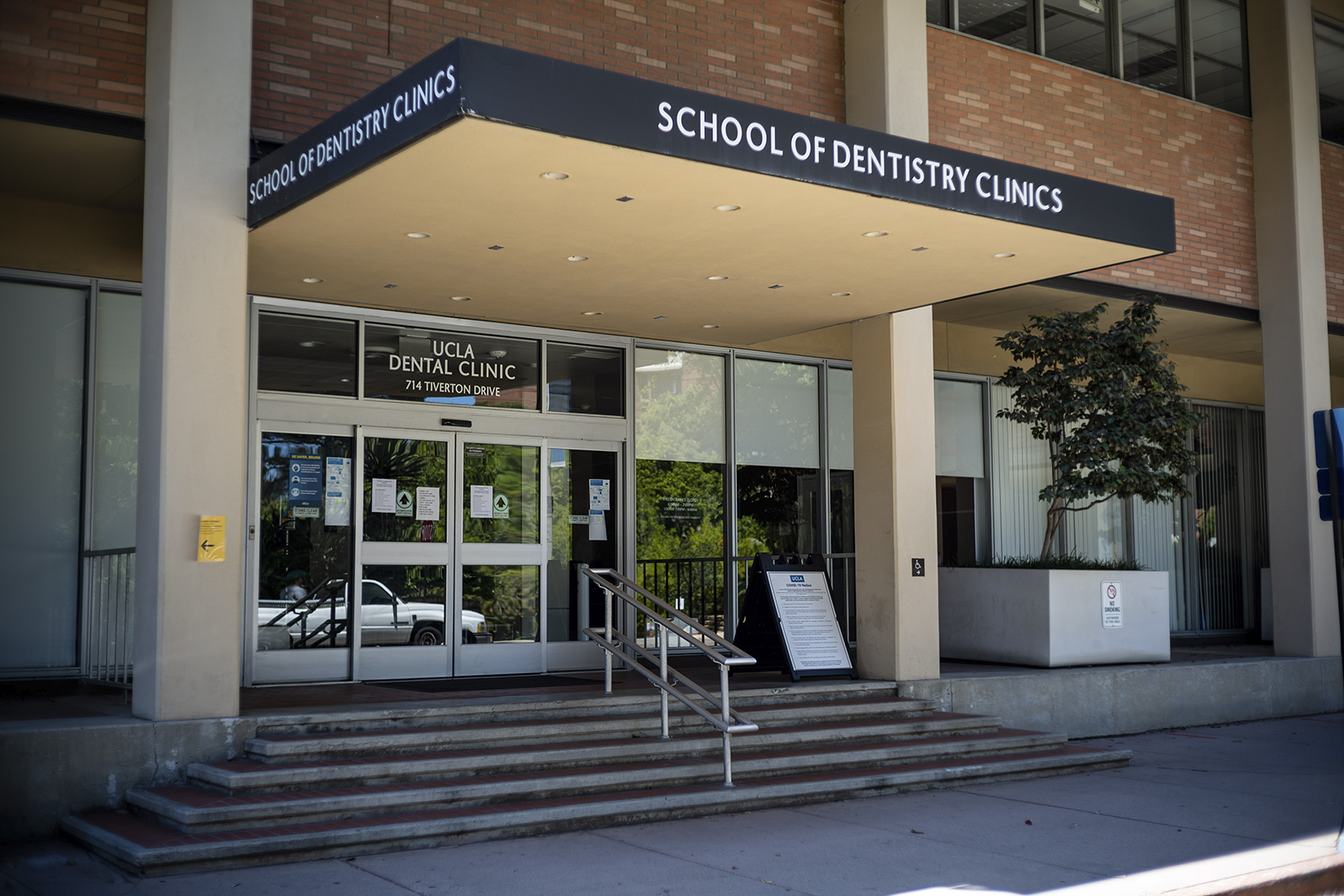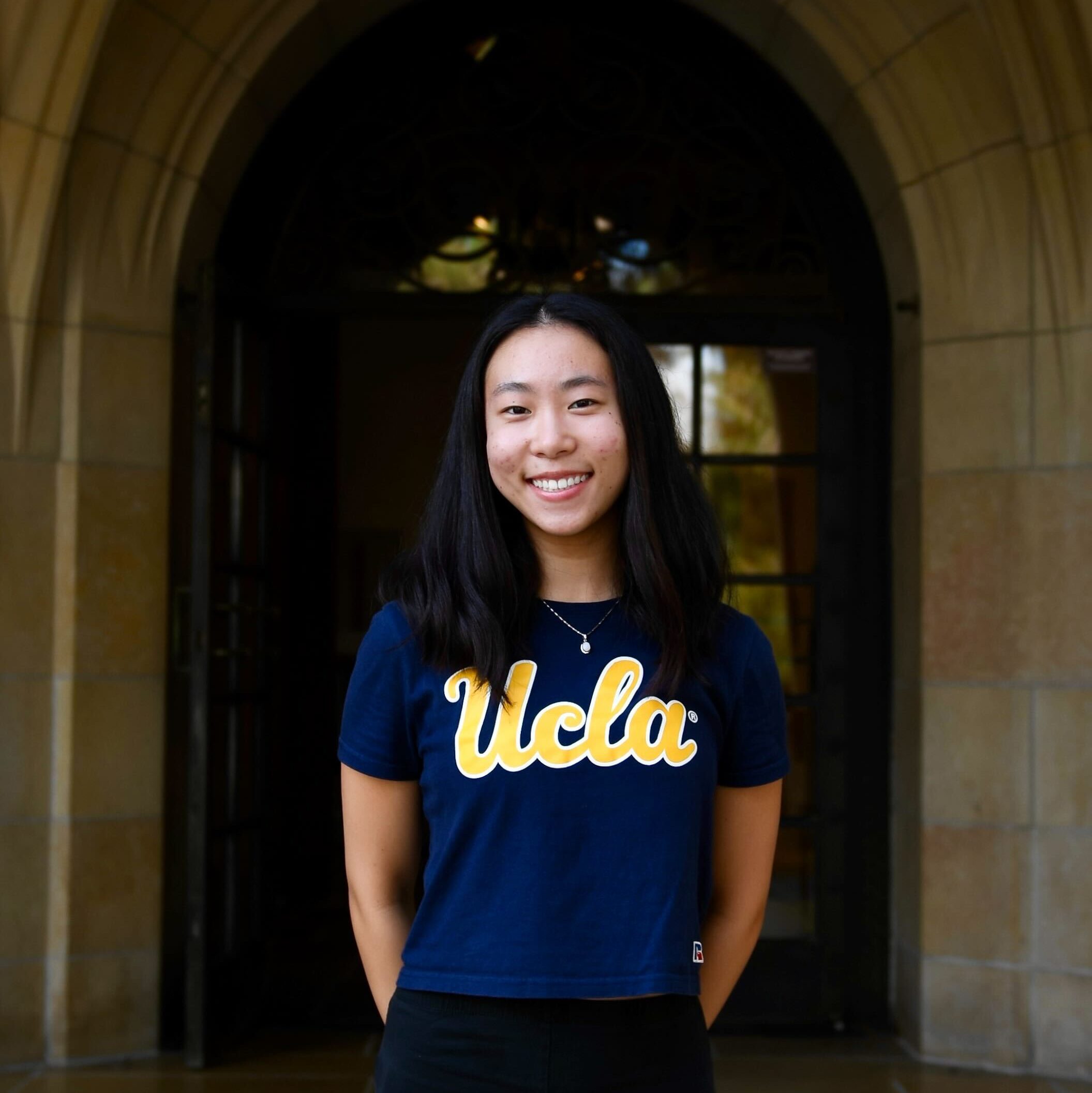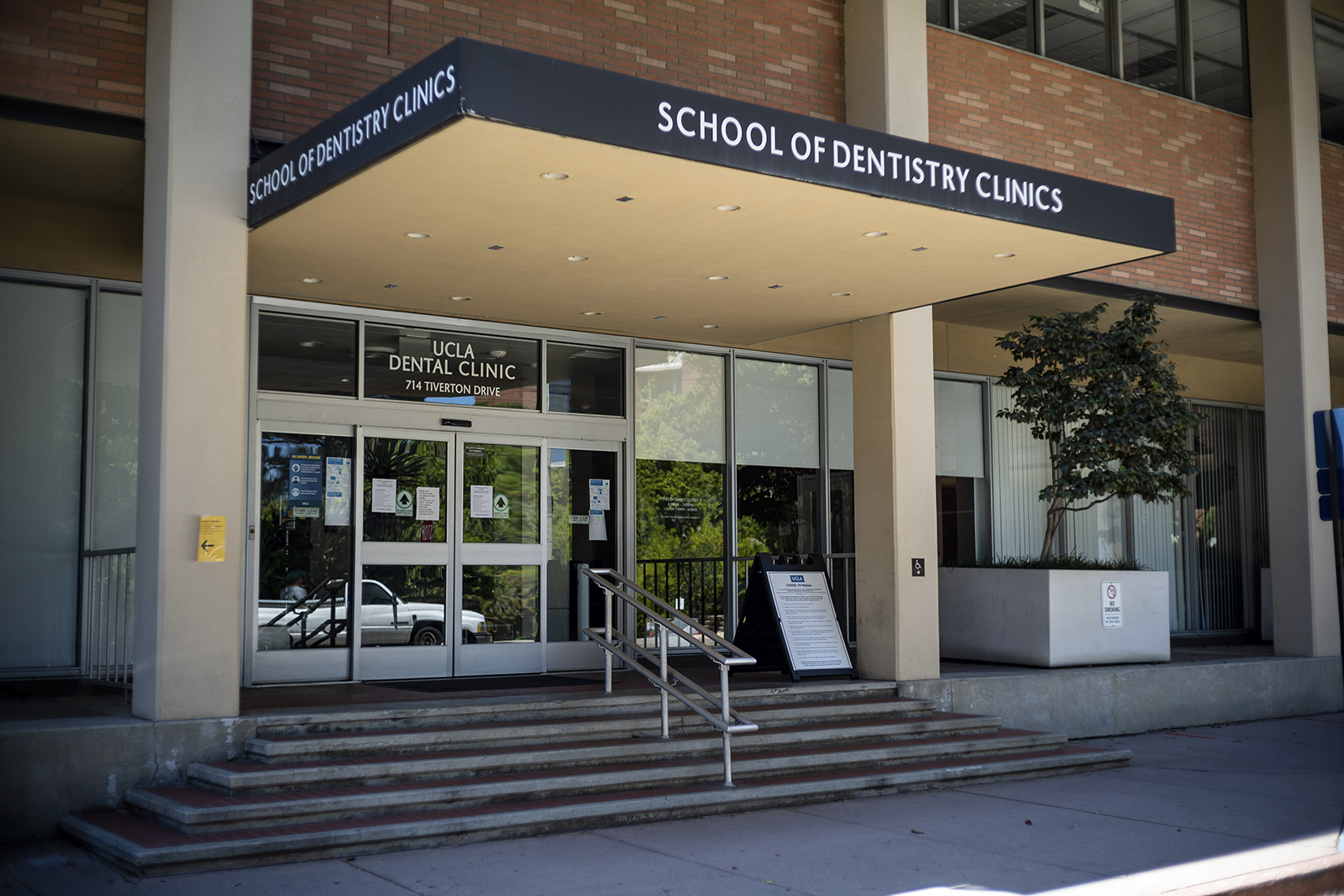UCLA researchers receive grant to develop cannabis-based painkiller

The School of Dentistry Clinics are pictured. Researchers from the school as well as other departments at UCLA received a grant to develop cannabis-based pain medications. (Daily Bruin file photo)

By Catherine Wang
Nov. 16, 2023 8:21 a.m.
Researchers at UCLA and New York University received a $5 million grant from the National Institute of Neurological Disorders and Stroke to develop new pain medications for people with oral cancer.
The project, led by School of Dentistry professor Igor Spigelman, includes a five-year study and eventual plans to apply for a clinical trial for a cannabis-based pain medication, according to an October press release from the School of Dentistry. The drive to create such a treatment came from a desire to create a medication without the addictive effects that some painkillers have, said Catherine Cahill, a co-primary investigator of the project.
Cahill, who is also a professor-in-residence of psychiatry and biobehavioral sciences, said the majority of current strong pain relievers are opioid-based because of their unique ability to decrease both the physical and emotional aspects of pain. Overprescription and false marketing of opioids such as oxycodone can make it more likely for patients to become addicted, she added.
Alexander Spokoyny, a co-primary investigator and chair of the Department of Chemistry and Biochemistry, said an additional problem with opioid-based painkillers is the impact they have on the cognitive abilities of patients.
“Many of these patients are terminally ill, … (and when) you’re training them on these opioids, a lot of them are essentially high, and they completely lose a lot of their cognitive abilities,” he said. “There really is an unmet need of creating a nonaddictive version of pain management that can provide a better standard of care.”
Spokoyny said that although these cannabinoid medications are not the same as substances derived from cannabis plants, they do activate the same receptors as natural cannabinoids do to relieve pain.
Cahill said her role in the project is to examine if the team’s painkillers can result in addiction if people start taking them without receiving medical advice. She added that the key to avoiding this is to block dopamine releases associated with taking the painkiller.
In future preclinical trials, the team will be studying how mice respond to the drug, Cahill said. The mice are given the option to stay in or leave the environment where they consumed the drug, she said, adding that if the mice choose to stay, that is a potential indicator of a rewarding effect.
In later trials, if a mouse can successfully train itself to perform some action – such as poking around with its nose – that would trigger the delivery of the drug, it suggests there is a possibility that the drug could be abused, Cahill added.
To create an effective but safe drug, various chemical properties must be taken into account, Spokoyny said.
Spokoyny said an ideal molecule must have the proper structure to bind to its target without dissolving first. He added that the drug must also be unable to pass through to the brain to avoid potential addictive side effects.
Another aspect to consider is the effectiveness of pain relief, Spokoyny said. He added that the cannabinoid molecules need to specifically target receptors in the mouth, where oral cancer develops.
“We are ultimately going to be making hundreds of molecules in the next several years, and we’re going to find the winner,” Spokoyny said. “From that, that winner is a potential target to go into the clinical trials.”
Such drugs could have practical use in medicine. As a former dentist who practiced for two years in the maxillofacial surgery department, postdoctoral scholar Dr. Mohammad Aziz said he has seen many patients struggling to deal with pain related to oral cancer.
“It affects the way that you eat, … it affects your life, the way that you look,” Aziz said. “If a nerve is involved, people have nerve pain, which is unbearable.”
Aziz, who researches methods to improve early diagnosis of oral cancer, said it is important to create an alternative to commonly used opioid treatments that can be more effective and mitigate side effects.
One challenge Cahill said she anticipates as the project moves forward is the presence of a placebo effect. Some patients will claim that their conditions have improved even if they have received a placebo pill, just because they want the medication to be successful, she said.
Spokoyny said he thinks receiving the grant shows the importance of creating more effective and nonaddictive medications to improve patient care.
“I think coming up with a pain medication that is nonaddictive and even half as effective as opioids would still be considered a holy grail,” Cahill said.



